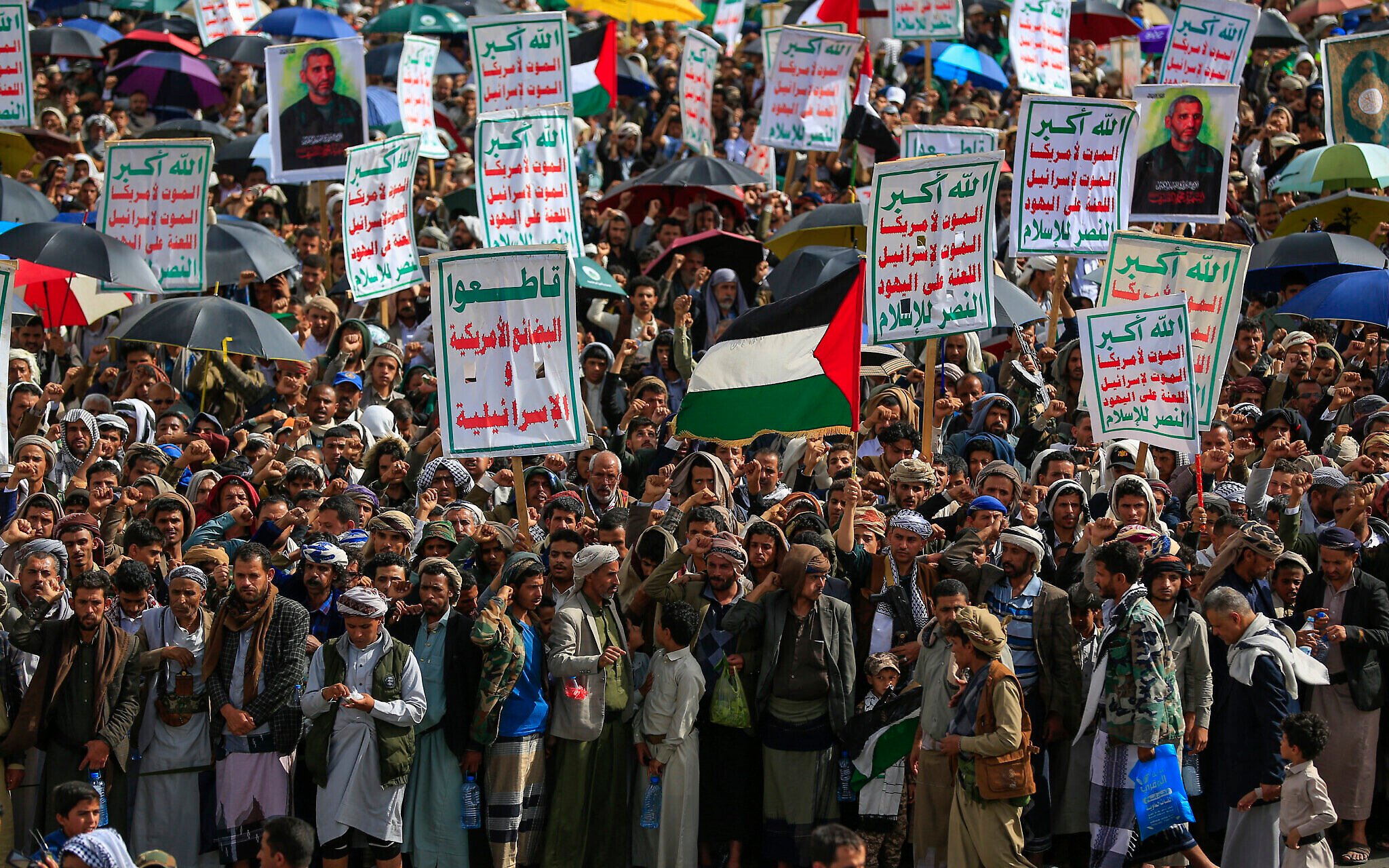Houthi military chief dies, group says, and Israel claims responsibility

The military commander of the Houthi rebels in Yemen, Muhammad al-Ghamari, has died, the Iran-backed group announced Thursday afternoon.
The group said in a lengthy statement that the high-ranking Houthi leader died alongside some of his companions and his 13-year-old son “in the course of his jihadist work” — without elaborating on the circumstances.
Al-Ghamari was a member of the Houthis’ “Jihad Office,” led by Abdul Malik al-Houthi, responsible for overseeing military operations.
Though the Houthis did not directly blame Israel for his killing, the rebel group stressed that their conflict with the Jewish state had not ended.
Israel will “receive its deterrent punishment for the crimes it has committed,” the statement continued.
Prime Minister Benjamin Netanyahu boasted following the announcement that “another chief of staff was eliminated from the ranks of terror leaders who sought to harm us.”
“Israel’s determined hand will reach everyone who has tried to harm us and made it their goal to destroy Israel,” Netanyahu’s office promised in a statement.
Responding to the Houthi announcement, Defense Minister Israel Katz said al-Ghamari was killed as a result of Israel’s strike on the group’s leaders in August, which killed the Houthi prime minister and around a dozen other senior officials.
Al-Ghamari was apparently fatally wounded in the attack.
“He joins his friends, the eliminated members of the axis of evil, in the depths of hell,” Katz said in a statement following the Houthis’ announcement. He added that Israel will take similar action “against any threat in the future as well.”
Defense Minister Israel Katz and IDF Intelligence Directorate chief Maj. Gen. Shlomi Binder are seen at a command center, in a photo issued on October 16, 2025. (Ariel Hermoni/Defense Ministry)
Israel carried out an earlier assassination attempt against al-Ghamari and other senior Houthi officials on June 12. At the time, reports indicated that al-Ghamari had survived but was severely wounded.
The IDF confirmed at the time that it had targeted him, but said that the results of the attack were unclear.
Katz said he also visited the Military Intelligence Directorate’s so-called “Houthi command center” on Thursday with the directorate’s chief, Maj. Gen. Shlomi Binder, where he thanked the soldiers and commanders “for the excellent work they have done and have yet to do against the Houthis in the future.”
The Houthis — whose slogan calls for “Death to America, Death to Israel, [and] a Curse on the Jews” — began attacking Israel and maritime traffic in November 2023, a month after the October 7, 2023, Hamas massacre.

Yemenis lift placards and Palestinian flags during a rally against Israel and the United States, in the Houthi-run capital Sanaa on July 18, 2025. (Mohammed Huwais/AFP)
The Houthis in Yemen have fired over 130 ballistic missiles and dozens of drones and cruise missiles at Israel, including one that killed a civilian and wounded several others in Tel Aviv in July 2024.
In response, Israel has attacked the Houthis, located some 1,800 kilometers (1,100 miles) away, 19 times.
The Houthis’ leader, Abdul Malik al-Houthi, said following the announcement of a Gaza ceasefire last week that the group would resume its attacks on Israel if they deem Jerusalem has failed to hold up its side of the deal.
Times of Israel staff contributed to this report.


